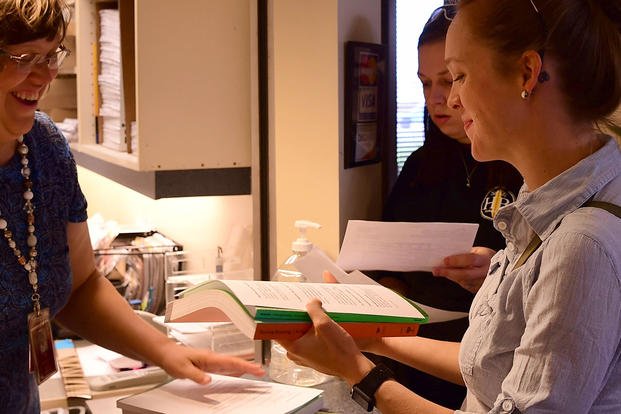Almetta Parker, a military spouse for more than 25 years, comments that she has always been hesitant about updating her resume because of a fragmented work history. She says, "I just didn't feel confident about sharing my experiences, because they weren't relevant." Whether a military spouse is changing careers or getting ready for his/her next job search, updating a resume is at the top of their to-do list.
The resume is a seemingly simple document that is meant to share relevant skills and experiences with prospective employers and network contacts. Although each of you will determine individually exactly how to tackle your resume, here are some tips to make the experience of drafting your disjointed work history a more positive experience for you. Dottie Frazier, a military spouse for 9 years, says, "Even though I don't like it, I know that a well written resume can increase my salary potential."
Related: Does your resume pass the 6-second test? Get a FREE assessment.
Recognize Your Attributes
First and foremost, recognize that you are a crucial asset in today's labor force. Military spouses have all of those indispensable "soft skills" on which the market is thriving. A military spouse can be expected to jump right into a position and land on his/her feet. They also have a variety of experiences they can draw from which increases their success in the workplace. Because of the many moves a transitioning spouse experiences, you can expect a military spouse to have excellent interpersonal skills with the ability to problem-solve individually and work in teams. As counterparts to active duty soldiers, military spouses have the same values that their counterparts vow to serve. This is also a valued asset to employers.
Don't Forget the Inventory
Before we begin to pack, often we either make a mental or formal note of our belongings, so that we will be able to make a correct claim should anything become broken or lost. You can apply the same principle to your work related experiences. "Work History" or "Relevant Experience" means any experience. Volunteering counts. Document the experience. Self-employment and part-time positions are also relevant.
Related: The Military Spouse Employment Manual
Emphasize Key Qualifications
A short four to six point key summary can help you highlight your key qualifications and make you stand out from the crowd. Summaries can be in a paragraph or bullet list format. They give you the opportunity to tailor your resume to fit the employer's search. Technology and language proficiency are key skills that fit perfectly in the summary section of your resume.
Stay Focused
Leaving out an objective statement at the beginning of your resume is a common mistake that many job seekers make. An objective statement makes the job of matching candidates with positions much easier for recruiters and human resources personnel. With the current trend in the workforce of changing jobs every 3-5 years, companies are becoming more aware of broadcast resumes that cry out, "Hire Me! I can do anything!" A focused job objective is relatively simple, and is as easy as a few keystrokes. Name the field or job and the company specifically.
Choose the Right Format
Another marketing strategy that can hold true to the masses of military spouses seeking to establish themselves in their current market of choice is to choose the right format for their resume.
There are two basic formats, the chronological and the combination resume. Chronological resumes are the most traditional, listing your current or most recent job first, working backwards for an average of ten years or less. They are also a military spouse's worst enemy.
A combination resume, on the other hand, can help you make a fragmented career history into a work of art. The trick to the combination resume is that the attention is drawn to your accomplishments and skills and not previous job titles. Combination resumes are versatile and the magic answer to the many issues that career spouses often have. When thinking about your skills, focus on those that draw the most attention to your job objective.
Research to Make the Match
The final key to success, whether you are diving feet-first into a new career field or just adjusting to a new market, is to take the extra effort to match your skills and experience to the job for which you are searching. Take advantage of the many reference tools that are available online, such as the Occupational Outlook Handbook and the many gateway sites that help you find specific information that is related to your current duty station.
Related: For the latest veteran jobs postings around the country, visit the Military.com Job Search section.
Looking for more job tips?
Sign up for a free Military.com membership to have military news, updates and job resources delivered directly to your inbox.























